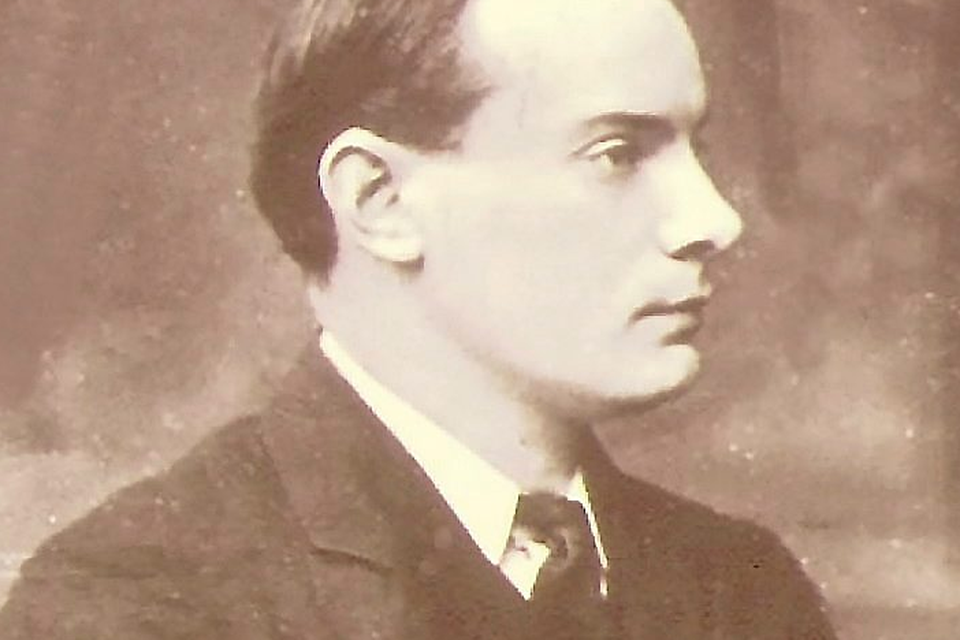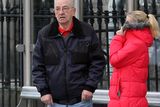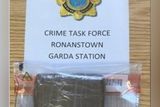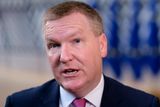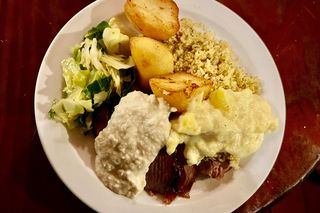Higgins: We have not achieved the dreams of the Rising leaders
In an evocative speech at the RDS, President Higgins invoked the ordinary lives of the Rising's heroes
The last words of Patrick Pearse to his mother before he was executed - "I will call you to my heart" - should echo down the ages as loudly as his reading of the Proclamation, President Higgins said
Andy Warhol once said that the relentless repetition of images could both reinforce their impact and message and rob the subject of its essential humanity. As Dublin has been plastered with pictures of the men and women of the Rising, and the airwaves crowded with their stories of heroism, it was perhaps easy to forget that these were also ordinary people, each with what WB Yeats called their "own little round of deeds and days".
It was fitting then that yesterday at the RDS, President Michael D Higgins chose the State Event For Relatives to "give correct place to the intimate human dimension of the Easter Rising and the sacrifices made by so many of those who helped to build our nation".
President Higgins summoned little vignettes highlighting the ordinary lives of the Rising leaders.
Thomas McDonagh, was not just a "mythical, abstract figure" or a soldier taking control of the Jacobs factory, but "a young man and father whose daughter woke up and put her arms around his neck as he said his last goodbye to her on Easter Sunday night".
The last words of Patrick Pearse to his mother before he was executed - "I will call you to my heart" - should echo down the ages as loudly as his reading of the Proclamation, President Higgins said.
The President vividly set the scene of the tumultuous years around the Rising, when Ireland "was a complex place where the shops, restaurants and back rooms of radical Dublin were alive with the conversations of a dynamic mixture of feminists, socialists, radicals, nationalists, anti-imperialists and the many other ideologists".
Within the great contrasts between the men and women of the Rising there were some constants, however, the President said.
Each of them had "come to perceive and recoil from what was a constant theme in the assumptions of the imperialist mind: that those dominated in any colony such as Ireland were lesser in human terms, in language, culture and politics".
And many of them had a polymath quality to them. James Connolly, for instance, "could write a play, be familiar with George Bernard Shaw's or Ibsen's work while busy with the tasks of organisation and agitation". The richness of the cultural milieu of the period was stunning, the President added.
He set the Rising in the broader context of tensions and conflicting priorities within nationalism and the wider tumult in Europe.
He quoted Czech leader Tomas Masaryk, who wrote that the war had turned Europe into a "laboratory atop a vast graveyard" and asked why should Ireland have been any different?
He alluded to Diarmaid Ferriter's recent writings, saying that the leaders of the Rising were concerned "not just with military or political victory, but with the elevation of the Irish people, long considered a 'rabble', to the status of a Nation".
Perhaps mindful of the recent controversies concerning feminism and the Rising, the President said that we should never forget the Proclamation was "addressed to the nation's women as well as its men in equal terms".
President Higgins also noted that in the midst of the commemorations there should also be a sense that a democracy is a work in progress and added that "in many respects we have not fully achieved the dreams and ideals for which our forebears gave so much".
He reminded the packed hall that many of those who died were civilians.
Fittingly in a speech ostensibly about ordinary people, Joe Duffy, who recently made a documentary on the subject of children and the Rising, got a name check. President Higgins paid tribute to "the families who lost sons, fathers, brothers, sisters or daughters". He finished with a typical piece of lyricism:
Inniu, ta se de dhulgas orainn ar fad Poblacht a shamhlu agus a chruthu as a mbeadh na bunaitheoiri broduil; naisiun croga, le fis agus le spiorad fial daonnachta.
("Today we are all charged to take on our own responsibilities in imagining and building a Republic in the fullest sense, institutional and experiential, one of which our founders would be proud; truly representative of a nation rooted in courage, vision and a profound spirit of generous humanity.")
Join the Irish Independent WhatsApp channel
Stay up to date with all the latest news
